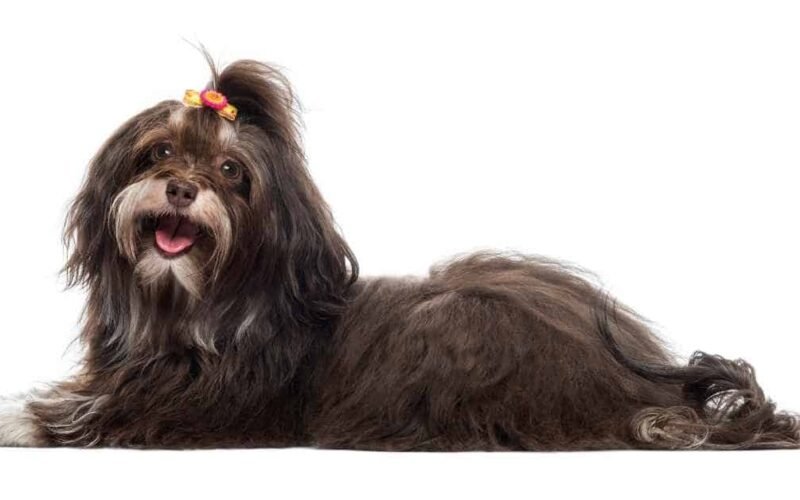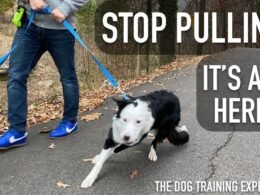Havanese are jovial family pets. They will fill your life with joyous mischiefs. As a toy breed, they are exceptionally robust and high-spirited. They will play with your children, cuddle in your lap for warmth and play games to tease you. They are incredibly extroverted dogs who desperately desire and are reliant upon companionship. Understandably, when left alone, they become miserly. Hence, the query: Can Havanese be aggressive?

Havanese tend to become bored and sullen when their masters are away and without optimum attention. So, if you have a 9-5 job, Havanese is not the right pet for you. Such cases of loneliness may lead to undesirable outcomes, like hyperactivity and a destructive attitude towards everybody. Read on to know more about such instances.
Havanese Behavior Problems
Havanese may exhibit specific negative behavior patterns like growling at various times to express their different moods. When growling fails to get their point across, they will resort to biting and other destructive behaviors. Without intervention, the situation will get unruly. The first two years of the Havanese are going to be rough if not appropriately trained. Nonetheless, these dogs usually pay attention to your guidance as they are compliant.
Havanese growl to communicate; it would be wise to think of the underlying factors. Like fear of someone or having their possessions being taken away may cause growling. Growling also occurs when they are exhilarated or uneasy. It’s vital to look into the context and remove the problem while also guiding your dog to react to the situation.
It will take a Havanese eight or ten months to mature. The adult temperament will be achieved when it’s two or three years. Havanese are usually most exuberant and lively the first two years, with their energy levels rising after the first. Training is best begun at an early age, or their mischiefs and barking will only increase, making training more adverse.
As individuals within the breed, Havanese may have slightly different temperaments. But some could be more or less energetic. When purchasing a Havanese, it is wise to ask about the dog’s parents and their dispositions. Behaviour is always made up of a combination of genetics and temperament. Thus, you need to know if the parents had any bad characteristics which would be unfitting for you.
Are Havanese good with kids?
Havanese are very family-friendly. They love people and kids in general. Kids will love how cheerful and sweet this breed can be, and they will be constantly entertained. Dogs may also feel protective and connected to the child even if their childhood wasn’t shared. The dog and the child will most likely create a profound relationship. Rest assured that your child is safe with your Havanese, even though a child should never be left with a pet on its own.
Havanese may have gifted playfulness, but they are not indefatigable. For untrained Havanese, being picked upon and disturbed when resting will cause them to growl. The Havanese may also have difficulties coping with children’s swift and unpredictable movements and noisy crying. You can hire a dog trainer to prevent this, especially if you usually have kids around at home skillfully.
Are Havanese good for first-time owners?
Havanese are convenient dogs that are entertaining. They are certainly easier to manage for first-time pet owners. First-time owners usually look for a pet that will make a great companion while keeping them content. It has been scientifically proven that pets can help curb anxiety and stress, and a Havanese pup will do just that. They will add color to your life and take a breath of fresh air with never-ending games every day.
Socialization will reinforce a more confident and outgoing personality and temperament. Other than that, there’s not much fuss about Havanese as they are intelligent creatures. They like being rewarded with food and toys and pats. You can also teach them tricks and games because they are very agile.
As a first-time owner, you should know that smaller dogs are easier to maintain. Havanese, being so small, will be easy to pick up and easy to control when on the leash. Bathing, brushing, and all else will cost less time and money. Moreover, these dogs don’t shed much at all. They will also require less exercise, training, and mental stimulation like more giant breeds.
How do you calm a Havanese?
It would help if you got rid of a Havanese’s need to bite or growl in the first place by early prevention. Notice what your Havanese dislikes and warn the other family members of them as well. Whatever you do, please don’t leave your Havanese alone for long periods simply because it’s angry or hostile, as that will make them feel abandoned.
Playpen:
You could start crating your dog with playpens and baby gates to restrict their excitement for protection. Puppy or dog pens are effective for cool-down periods. However, it shouldn’t be used as a punishment, or they shouldn’t see it as one. A cordial introduction to the pen with lots of toys and treats will encourage a long-term relationship with the pen.
When the Havanese is confining in pen, it will be soothed. You will notice your Havanese will be lying or sitting down and playing with its toys.
Stimulation:
Puppies are usually raving. They could be stimulated in several ways, from command training to interactive games like puzzles and socialization, the list goes on. At least five minutes of physical exercise daily will make it feel less energized. Socializing with dogs will also help it connect in its language deprived of when around humans.
Mental exercise is just as crucial as physical exercise, if not more. It will give the dog the same feeling of exhaustion as it should have achieved from zooming. Unless Havanese is mentally stimulated, it won’t garner inner growth and engagement to help it become calm and tired.
Toys and Chewable Treats:
When kept in the dog’s daily caloric intake, treatments can prove to be a huge success, as dogs love rewards. Chews also aid in stimulating their troubles with teething, so it’s a win-win. In contrast, toys that Havanese like will make them preferably stay with their favorite toy. These toys in the playpen will keep your Havanese absorbed!
Command Training:
Command training is mandatory at all times. Teaching your puppy early on vital skills and good etiquette will promote a healthy attitude in the dog in the future. Common skills like sit, drop, stand, down, come and stay will provide better communication between you and your Havanese while giving it more attention. Moreover, your dog will feel more content and work by being obedient so that the zoomer may zoom a little less afterward!
Muzzle:
Muzzles are only required for those Havanese that has already gone out of hand and are biting. So while you take other measures and work on your training skills, make sure to don a muzzle on your dog as a precautionary attempt.
Frequently Asked Questions
Are Havanese dogs biters?
Havanese are a sweet breed that makes an excellent family member. But, like every other breed, he must learn proper etiquette, which requires avoiding nipping. Moreover, it is critical to instill in him the general law that biting is not appropriate.
What’s terrible about Havanese?
The majority of Havanese live a long life. However, they are vulnerable to allergies, which may hurt their standard of life. Fleas, hay, pollen, and other allergens can cause allergic reactions in Havanese. Allergies involve a dog’s scratching and chewing, resulting in awful skin problems.
Do Havanese dogs smell?
The Havanese is a non-shedding, long-haired breed with no canine smell. They are beneficial to allergy sufferers, and Havanese are well tolerated by most people who are allergic to dogs. Since they do not shed, they mat and must be washed repeatedly every week to keep them clump-free.
Are Havanese hard to potty train?
Toy dogs, in particular, are said to be more challenging to potty train. Since Havanese dogs fall under this group, they can be difficult to potty train.
Are Havanese high maintenance?
The Havanese is high maintenance and must be groomed regularly with a full coat. Fully covered, their hair can extend to be eight inches long. A full coat will have to wash routinely and bathed once a week.
Do Havanese need another dog?
Havanese dogs adore one another and enjoy spending time together. A Havanese will be content as long as they have an owner or another social dog around.
Final Thought
Havanese is a breed that, without adequate attention, they drain mentally and physically. Look at the contextual reasons for their aggression and attempt to solve them. Even in their worst times, Havanese will remain the same compliant creatures. So start giving them more time if you haven’t already. And hopefully, this comprehensive article has abridged you with the necessary details to understand your havanese or to understand whether you want one at all.











